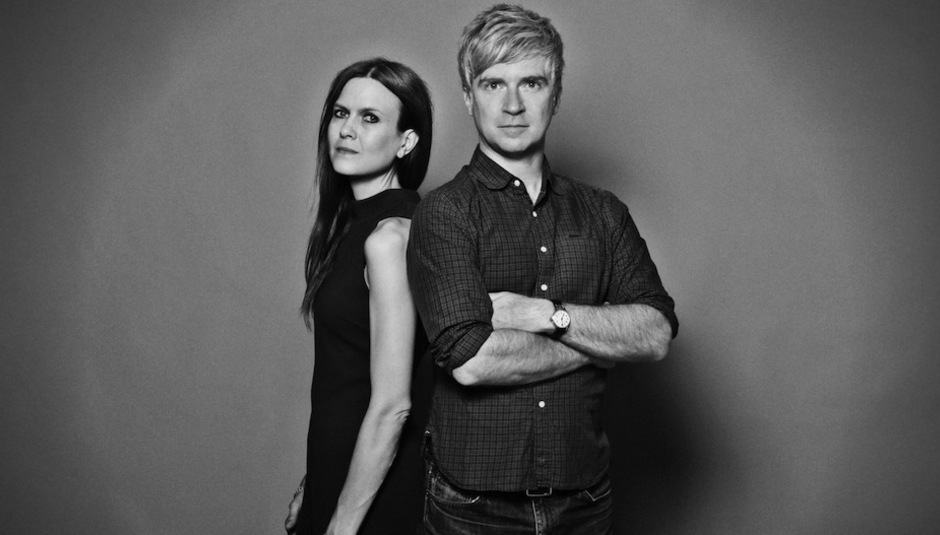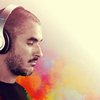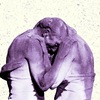“We were just assuming we could do it, because we liked each other’s music. We hadn’t really hung out much.”
Manchester’s Roadhouse, perched unassumingly on the outskirts of the Northern Quarter, is a throwback in pretty much every sense. It’s literally underground, the lack of a raised stage guarantees poor sightlines, and the nearest you’re going to get to a craft ale is Newcastle Brown. It’s the epitome of the classic, grimy rock club, defiant in the face of the changing times; it doesn’t see anything like as many international bands as it used to, with new venues popping up all over town in pursuit of the hipster pound, but somebody must have known that it’d be a perfect fit for Minor Alps, the new project from Juliana Hatfield and Matthew Caws.
Both are well-traveled alumni of the nineties indie rock scene; with Caws’ Nada Surf hailing from New York City and Hatfield, now best known for a solo career that’s spawned twelve solo records, based in Massachusetts for most of her life, the two repeatedly ran into one another down the years. They were fans of each other’s work - Caws, in particular, was a huge admirer of Hatfield’s former band Blake Babies - but never really found the opportunity to properly acquaint themselves, let alone work together. When they eventually collaborated on a Nada Surf track - ‘I Wanna Take You Home’, a bonus cut from 2008’s Lucky - they recognised that there was serious potential for something more substantial.
The gorgeous manner in which the pair’s voices meld together is really the bedrock of their debut record under the Minor Alps moniker, Get There. They jumped at the chance to start work on a full-length when a rare break in Nada Surf’s relentless schedule allowed for it; the result is a mellower effort than either usually turn in, with a basic emphasis on melodic guitars and vocal harmonisation augmented by programmed beats and some eccentric instrumental choices. Ahead of their second European show of eighteen consecutive, they broke away from late-afternoon preparations - Caws loading gear in, Hatfield single-handedly attempting to fix the venue’s wi-fi - to discuss the record’s genesis, the nature of songwriting, and the future of their individual careers.
DiS: What provided the impetus to finally get together and make a record?
Matthew Caws: Well, Nada Surf decided to take a year off, after being on for twenty. Just because, you know? There was no real reason; I guess we were maybe just trying to stave off any potential burnout in advance, and ensure we’d be able to carry on with the band in the future. Everybody’s happy, but at the same time, we all agreed, like, “come on. It’s time we had a break.” The first thing that really occurred to me to do with that time was to make something with Juliana.
You were living on opposite sides of the Atlantic at that point, right? How did you make that work?
Juliana Hatfield: Yeah; we still are, actually. I live in Cambridge, Massachusetts and Matthew, funnily enough, lives in Cambridge, England. We did some traveling and just hung out; we started writing in Brooklyn, then I came over here for a few days, and then Matthew came out to the States; just these little back-and-forth bursts of activity. We did come up with some stuff alone and sent it to each other, but we were really trying to do as little of that as possible.
MC: We definitely felt like we needed to make the effort, geographically. The record wouldn’t have turned out the same if we hadn’t been sitting in the same room when we wrote it.
Where did you end up recording it?
MC: Hoboken, New Jersey.
JH: Which is basically New York City.
Why there?
MC: It was really just that Tom Beaujour has a studio there; he’s an old friend of mine, going back to childhood, and we were keen to get the tracks put down with him. He’s never actually recorded a Nada Surf album, come to think of it, but he has done overdubs on them and other little bits and bobs afterwards, so I knew what he was about.
Did you play everything yourselves?
MC: We had a couple of drummers in, but otherwise it was all us, yeah. I think that was Juliana’s idea, to try to make sure that as much of it as possible was just the two of us.
JH: There were a lot of people in New York, a lot of friends of ours who would’ve been pretty excited to work on it; we were lucky in that respect, but there’s just so much more character to the record as a result of us keeping it to ourselves as much as we could.
How did you find being in a band again, Juliana? It’s been a long time since you’ve worked with other people.
JH: Yeah, it has. I mean, the way I work on my solo records, I do everything completely alone, completely by myself. I felt like I’d forgotten what collaboration was, to be honest. It’s been that long since I’ve worked that way. I was pretty rusty to begin with, I think. It’s a good job Matthew’s such a tolerant person.
You mentioned that you didn’t know each other all that well beforehand; was there an awkwardness that you needed to work past when you started out?
JH: Kind of. I mean, we’ve both been writing songs for so long that we have a little bit of confidence in our own ability by now. It wasn’t that we were scared of doing something new; I knew how good a songwriter Matthew was, and so I had to kind of trust that the process would be a successful one. I think it was more a case of overcoming that initial shyness and, for me especially, my difficulties in communicating with other people after such a long time working alone.
How different was working on this project to writing for Nada Surf, Matthew?
MC: Super different, actually. You know, I have twenty years of experience with the band, so I’m not embarrassed to try out lyrics with them any more. That wasn’t really the stumbling block with Juliana, but there is that insecurity when you start out, and a lot of the time those kinds of problems can end up becoming bigger in your head than they are in reality. In the end, I felt like I got further with Juliana than I ever have with the band, in a way, because not only do I really identify with a lot of the songs that she’s written in the past, but I also identify with her personally, because we’re both songwriters. I know that she understands what I’m going through.
That whole process of writing a song, it’s like - you’re gonna make up some stuff that’s true and not true at the same time. If it’s something that’s really confident, it doesn’t necessarily mean that you’re arrogant, and if it’s a lyric that’s really weak, it doesn’t mean that you’re pathetic, you know? A lot of it is like hyper reality anyway. After a while, it began to feel really good; even though we weren’t co-writing line-for-line, or even verse-for-verse, it was still like we we could edit each other and be a cheerleader for each other.
Is that something you’ve experienced in the past?
MC: Not really. It was definitely liberating to not be the only one looking at my own bunch of words, because when I make judgement calls about them, I’m not sure I’m always right. Sometimes I’ll champion a line that’s pretty awkward, and throw away lines that are actually hitting the mark. It was a real luxury to be able to let go of having to make those decisions myself - if there was a line that I was worried about, but Juliana didn’t mention it, I’d know it was OK. It was like having a safety net that I’d never had before. It’s nice to have a cheerleader, you know? And I’m not saying the guys in Nada Surf aren’t, because they really are, but to work with a person who understands writing the same way I do - it’s so valuable. It’s like singing into the mirror.
Did you ever worry that it just plain might not work out between you when it came to writing together?
JH: I didn’t, really. The important thing was that we had sung together before, and we knew how well it had worked. It felt natural enough, easy enough, that we knew we were really on to something. The way our voices work together really defines the sound of the band, I think.
MC: Yeah, and I think liking somebody’s melodies is really like a shortcut in a way. You know how people say that music says things that can’t be said? That it bypasses your brain, and goes straight to your feelings? I can’t imagine not getting along with somebody who’s melodies I really like. That might sound naive, but for my part, I’d bet on it. That’s some kind of common something right there.
JH: You sort of know that you have an affinity for something that’s not really tangible.
MC: And if the other person is making choices that so often, you either a) would’ve made yourself or b) wish you would’ve made yourself, it’s like a guarantee that there’s going to be something worth working with there. It’s like recognising another member of your own sub-species.
What really interests me about the record is that the basic sound of it is really straightforward, just guitars and vocals, but there’s some weirder instrumentation on there, too - the percussion and the synths. Was that deliberate, or just how it turned out in the studio?
JH: I definitely don’t remember deciding on anything in the beginning. We jumped straight into the writing of it and started demoing pretty early on, so a lot of our ideas for songs ended up in that sort of form, with just a beat and an acoustic guitar. We built everything else around that, but we hadn’t planned for it to be that way. We were just feeling our way through it. It was pretty intuitive; ‘I Don’t Know What to Do with My Hands’ is a good example, actually. That song just felt like it needed to have live drums on it, and electric guitar, so we ran with it.
MC: I think I’ve been having that experience for a long time now, when you’re working on something and hanging out with friends and somebody goes, “so what’s it gonna be like?” And, to be honest, I’ve always kind of made up whatever answer I’ve given them.
JH: Because you don’t know until you’ve done it, right?
MC: Right, yeah. And personally, I know that there is no deciding, there is no planning ahead, and I think that I was trusting that we’d both know that, because we’ve both done it. You can talk about it and you can come up with some pre-conceived ideas, but it usually - in my experience, at least - ends up going out of the window.
What ended up being behind the more experimental side of the sound? It seems kind of surprising that you ended up gravitating towards programmed beats.
MC: Well, Chris Egan (Solange, Blood Orange), who’s one of the two drummers on the record, he was coming down to the studio, and we told him that if he had a drum machine, he should bring it along. He had this particular one, this Roland 909, and that’s all there is of that kind of thing on the record. We didn’t know if we wanted a bunch of songs like that and then a bunch of songs that were rockier with live stuff, but in the end it was kind of a combination. The other drummer, Parker Kindred (Jeff Buckley, Antony and the Johnsons) came in, and we were thinking that we’d maybe just recut the tracks in a different way, but when he heard what we’d done with Chris, he just said, “I don’t wanna redo that, but I could play against it!”
JH: So I guess we did have outside opinions pointing us in one direction or another, but we were quite happy to spend a while just messing around, trying things and seeing what worked.
Changing tack slightly - I love the cover art. Where’s it from?
MC: It’s a photograph from the Olympic Peninsula, near Seattle. It’s not an Alp. We actually were messing around with a lot of photos of the Alps themselves; there were some really cool ones, night time ones, but it was hard to make them work. They were awesome, but really weird and dark. I’ve actually had a bad experience with that in the past, with a Nada Surf record we did called Lucky. You don’t always know how it’s going to print; you’re looking at your computer screen and thinking it looks great, but obviously the screen is generating light. You get the real thing and think “oh, man. This is not how I thought it was gonna look, it’s really fucking flat.” We love that picture too, though. It’s a nice fit, I think.
Were you always planning to come out on tour? There’s plenty of side projects that never make it to the stage.
JH: I don’t think we made any promises to start out with, but I guess the excitement of making the record caught up with us. I think you’re always going to hope that you will.
MC: We had a bit of a pre-determined timeframe to work with, too, that was understood from the beginning. I was only taking a year out from Nada Surf, and Juliana wanted to get back to her own projects, too, so I guess we knew that anything we did would have to fit in with that. It’s kind of nice, setting parameters like that, because you know you’re not going to be able to get tied into anything too exhausting.
Have you got anything lined up past this tour?
JH: Absolutely nothing.
Would you make another record together?
JH: (pauses) There aren’t any plans to.
MC: I’m going to start work on another Nada Surf album pretty soon, so that’s the next thing for me. I could definitely imagine doing more Minor Alps stuff, though.
JH: I’ve been doing a lot of painting lately, just by myself, for myself. I’m not really sure what’s next right now. I do want to make a really hard rock record again, at some point. I don’t know; I think it’s good, sometimes, not to plan everything. You can’t be disappointed that way.
MC: Yeah. Just carry a big stick and don’t make promises.
Get There is available now via Barsuk Records























